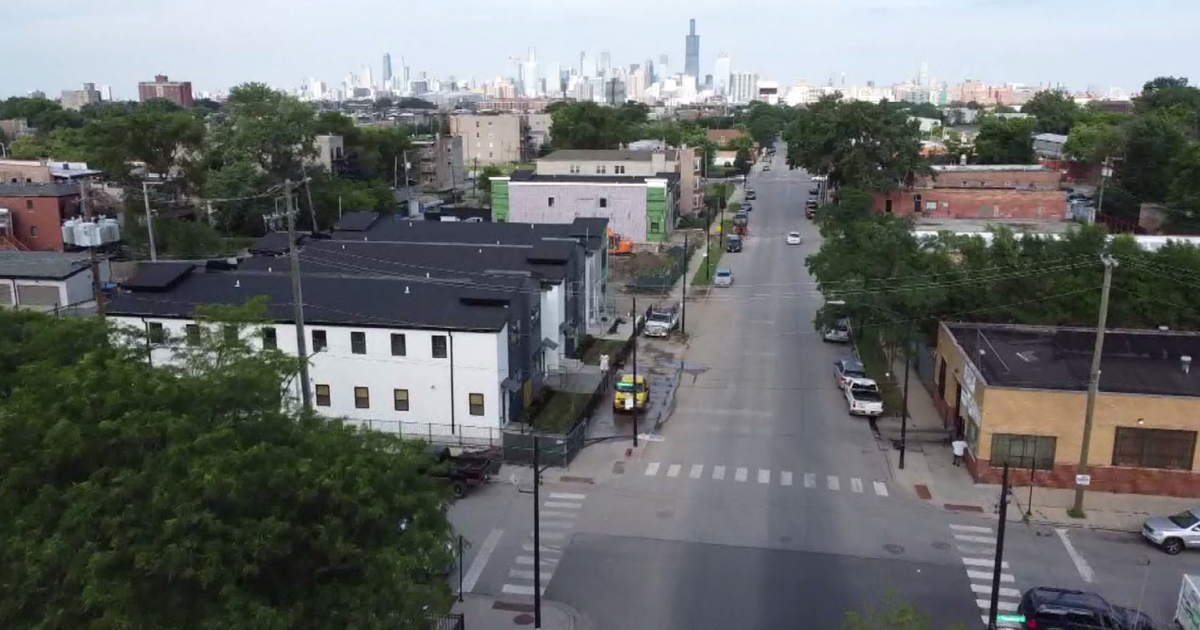Another Town Eases Rules On Chickens
WEST DUNDEE, Ill. (STMW/CBS) - Planners in northwest suburban West Dundee pecked away at some animal ordinance changes this week but in the end accepted them all, paving the way for residents to raise chickens in backyard coops.
The planning and zoning commission approved amendments to the municipal code for residential districts to match up with the new animal regulations previously passed by the village board.
Chickens and coops have been a hot topic in West Dundee the last couple of months after resident Brian Leith brought the issue to the village board in hopes of raising four chicks this spring.
Keeping chickens in urban settings is a growing trend across the nation.
In Kendall County, the County Board this month approved an amendment to its zoning ordinance to allow people living on lots of at least one acre to keep up to 12 chickens.
Previously, chickens were allowed on property of between one and three acres, with a maximum of five chickens.
North suburban Evanston approved a proposal in September allowing residents there to keep between two and six chickens in properly constructed coops, reversing a ban dating back to 1974.
The West Dundee village's residential district codes prohibited raising poultry, pigeons, bees, livestock and fur-bearing animals for commercial purposes. Board members changed the code earlier this month to allow a resident to raise a maximum of four animals, each weighing less than 15 pounds, for an annual fee of $25. If the animal is heavier, the owner would have to pay $25 per animal and need at least 5 acres of land.
The other big change the board approved was to require all chicken coops to be at least 15 feet from the nearest home.
The changes then were forwarded to the planning and zoning commission for review, but not all members of the commission agreed with them.
"I feel that is absolutely too close to another home," commission Chairman Roger Susanke said. "They make noise, they are feeding and scratching. I can't see any of this working with fewer than 5 acres."
Members discussed the possibility of requiring coops to be at least 15 feet from the lot line, as opposed to the neighboring structure. However, that would make it difficult for the owner of a smaller lot to site a coop in the backyard. Trustee Tom Price was in attendance and said the board did not make it from the lot line because that would prevent the owners from putting other structures in the backyard.
Commissioner Tim Haley, who admitted he had a neighbor with three chickens that he didn't even know about for years, applauded the village's attempt at trying to become a greener society, something Price also commented on at a September board meeting.
"This is a trend of what is going on," Price said. "Urban agriculture is becoming more and more common, and this provides an opportunity where we can be a leading edge on supporting sustainable lifestyles."
In the end, Leith said was satisfied with the decision and the way the village is going.
"I want to be able to educate my children and show them all food doesn't come from the grocery store," Leith said. "I think everybody should have them, to be honest."
(Source: Sun-Times Media Wire © Chicago Sun-Times 2010. All Rights Reserved. This material may not be published, broadcast, rewritten, or redistributed. CBS contributed to this report.)







